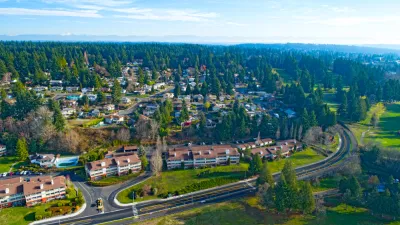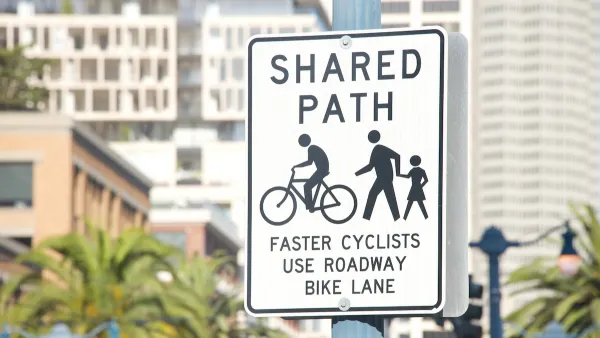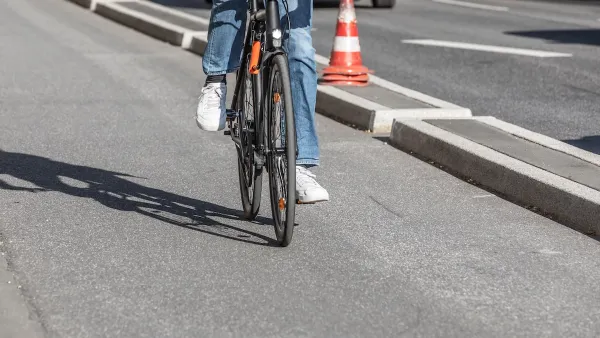A new requirement that mandates bike and pedestrian improvements on state road projects is starting to pay off with real commitments to Complete Streets infrastructure.

According to an article by The Urbanist’s Ryan Packer, Washington state’s new Complete Streets law is starting to pay off. Part of a legislative package known as Move Ahead Washington, the mandate requires the Washington State Department of Transportation (WSDOT) to “coordinate adding bike and pedestrian facilities when basic maintenance is planned.”
As Packer explains, “Any state highway projects over $500,000 in cost now require the state to evaluate whether gaps in both existing bicycle and pedestrian networks can be filled, and standards are required to be adhered to when it comes to separation between those facilities and automobile travel lanes.”
The law could soon prove itself in Edmonds, where a “full overhaul” of State Route 99 is underway. For Edmonds, the new requirements mean adding 4.5-foot bike lanes in each direction to their original road redesign plans. “The real time changes we see to accommodate the extra nine feet of space required are planned buffers and planting strips narrowing and the twelve foot business access-and-transit (BAT) lanes shrinking by one foot each. Otherwise the six travel lanes along the highway are unaffected.” These small but important changes, Packer notes, would have been left on the table without the Complete Streets law.
Packer details the funding allocated to Complete Streets and other projects around the state slated to get bike and pedestrian improvements. Optimistically, Packer concludes that “The new requirement has the potential to correct decades of oversights from local leaders and transportation officials when it comes to the bike and pedestrian networks on Washington’s state highways.”
FULL STORY: Washington’s Complete Streets Mandate Starts to Pay Dividends

Analysis: Cybertruck Fatality Rate Far Exceeds That of Ford Pinto
The Tesla Cybertruck was recalled seven times last year.

National Parks Layoffs Will Cause Communities to Lose Billions
Thousands of essential park workers were laid off this week, just before the busy spring break season.

Retro-silient?: America’s First “Eco-burb,” The Woodlands Turns 50
A master-planned community north of Houston offers lessons on green infrastructure and resilient design, but falls short of its founder’s lofty affordability and walkability goals.

Test News Post 1
This is a summary

Analysis: Cybertruck Fatality Rate Far Exceeds That of Ford Pinto
The Tesla Cybertruck was recalled seven times last year.

Test News Headline 46
Test for the image on the front page.
Urban Design for Planners 1: Software Tools
This six-course series explores essential urban design concepts using open source software and equips planners with the tools they need to participate fully in the urban design process.
Planning for Universal Design
Learn the tools for implementing Universal Design in planning regulations.
EMC Planning Group, Inc.
Planetizen
Planetizen
Mpact (formerly Rail~Volution)
Great Falls Development Authority, Inc.
HUDs Office of Policy Development and Research
NYU Wagner Graduate School of Public Service




























